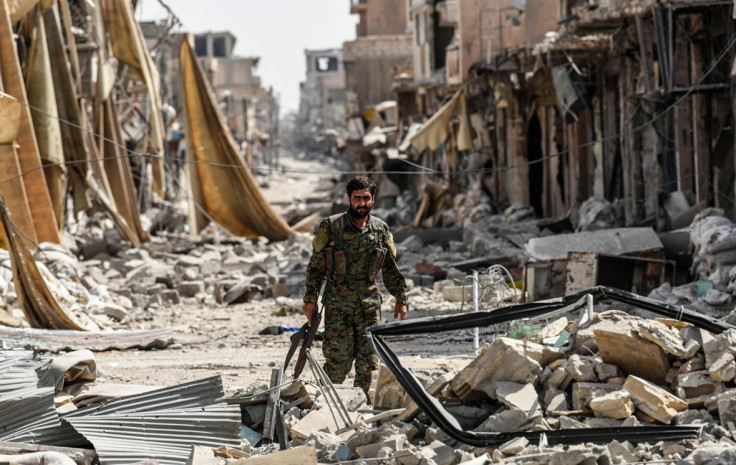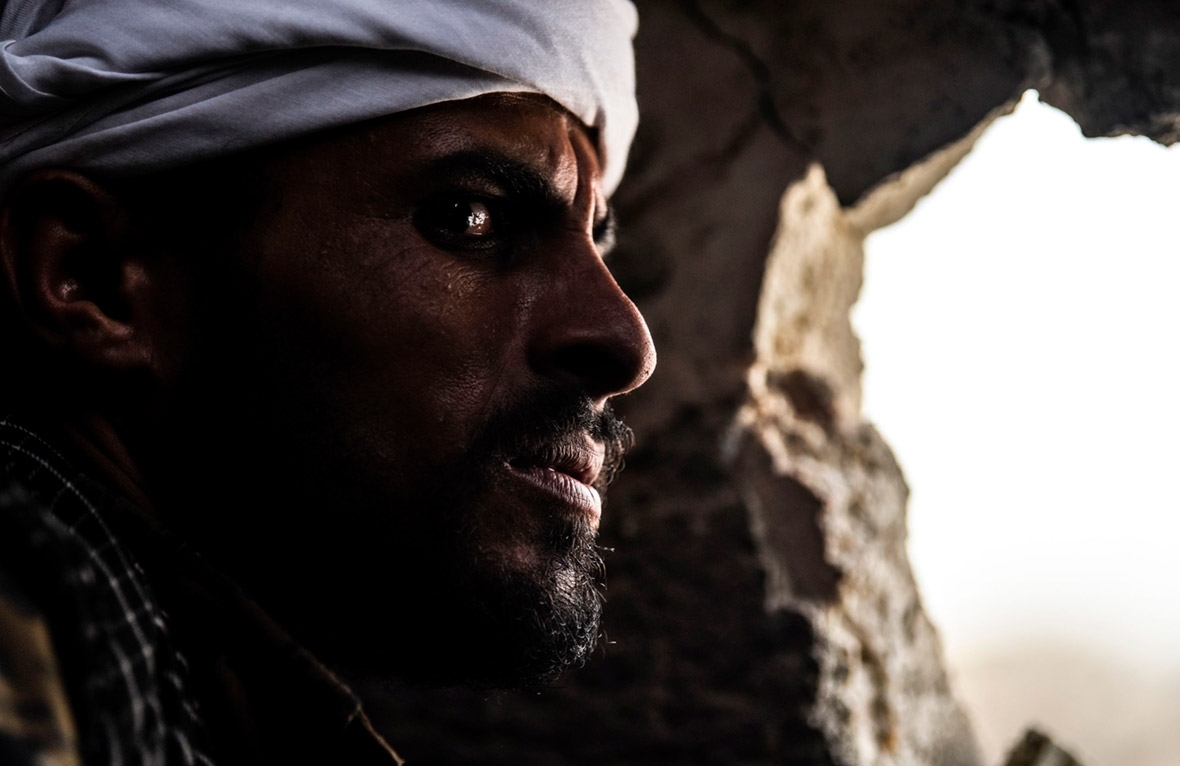Photos of 'final stages' in battle for Raqqa as noose tightens on Isis
Syrian Democratic Forces have seized 80 to 90 percent of the city and have hemmed the jihadists into a few districts in the north of the city.
The battle for Raqqa – the de-facto Syrian capital of Islamic State (Isis/Daesh) – has reached its "final stages" and should be over within a month, a Kurdish commander told Reuters. US-backed Kurdish and Arab militias – fighting together under the banner of the Syrian Democratic Forces (SDF) – have seized 80 to 90 percent of the city and have hemmed the jihadists into a few districts in the north of the city.
The historic old city has been reduced to rubble by repeated coalition air strikes. IBTimes UK presents photos of the final stages in the battle for Raqqa.

"As the noose tightens, the reaction of Daesh gets fiercer," said Jihan Sheikh Ahmed, spokeswoman for the Raqqa offensive. "In the coming days, the battles will be at their most intense. We expect, under our plan, that we will be able to liberate Raqqa in less than a month."
Estimates of the number of Isis fighters holed up in a pocket of the city range from 300 to 1,000. Ahmed said she did not expect them to surrender and the SDF would never allow them passage out. The Syrian Observatory for Human Rights says the remaining Isis militants have nearly run out of food and munitions.
Thousands of civilians remain trapped there too, and Ahmed accused Isis snipers of targeting them and using them as human shields. Tens of thousands more have been displaced by the fighting since June, often to wind up in abject conditions in SDF-run camps in northern or eastern Raqqa.








The US and its international coalition partners have intensified their air strikes on the militants' last remaining enclave in Raqqa, according to the Britain-based Syrian Observatory for Human Rights, which monitors the war.
The Observatory has accused the US-led coalition of killing more than 1,000 civilians in air strikes on Raqqa since the SDF first entered the city in June. The claim could not be independently verified. The coalition has said repeatedly that it relies on the latest intelligence to minimise civilian casualties and strike only military targets.
The SDF pushed into the city in June after fighting for months to encircle it with the help of US-led air strikes and special forces.
With the Kurdish YPG militia at its forefront, the SDF has closed in from three directions. Isis militants put up tough resistance, planting scores of mines around their districts, Ahmed said. SDF forces sought to "meet up from several axes" to squeeze the Isis enclave, said a field commander in the northeast of Raqqa. Shefkar Hemo said his fighters had faced fewer mortar shells and car bombs recently, with the jihadists relying more heavily on snipers. "The breach of enemy lines is clear on the ground... Daesh are hiding behind civilians," he said.
Another field commander in the city said the latest phase of the battle had proved difficult. "Daesh is also entrenched in the National Hospital, which they consider a main position," she said. "Our forces besieged the hospital," but were being cautious to avoid damaging it, she said. Earlier this month, Physicians for Human Rights said that poorly-equipped hospital was the last medical facility operating in the city.








Isis has lost much of its territory in Syria this year under separate offensives by the SDF and the Russia-backed Syrian military. Its fighters have fallen back to its last major footholds, the cities and towns in the fertile strip along the Euphrates river downstream of Raqqa. The "caliphate" that Islamic State declared in 2014, spanning both countries, lost its de-facto Iraqi capital of Mosul in July when Iraqi forces took the city.
© Copyright IBTimes 2025. All rights reserved.






















